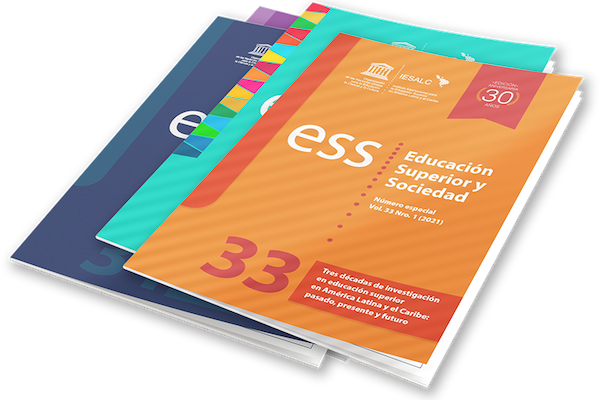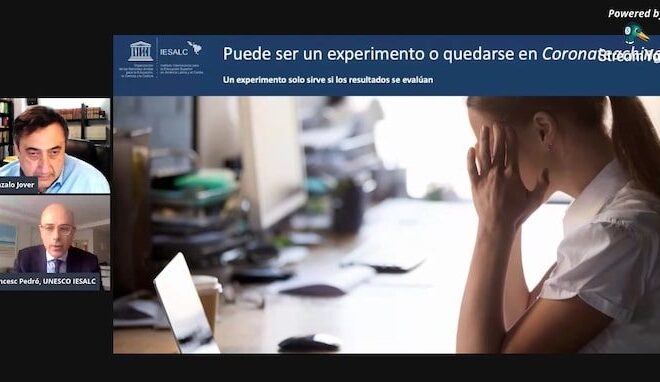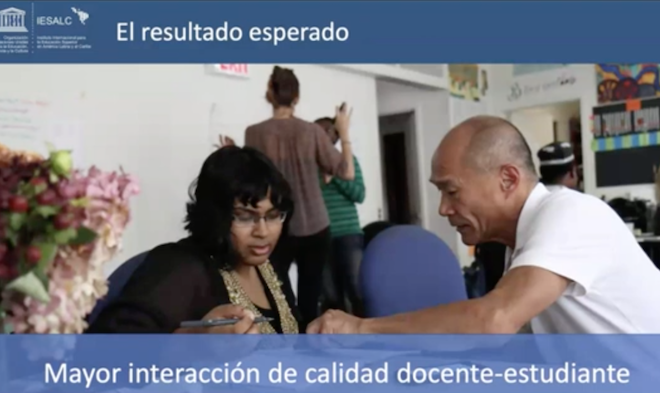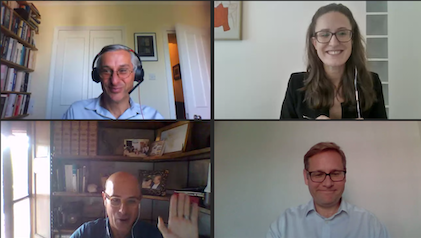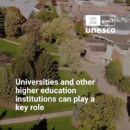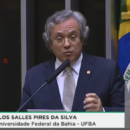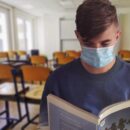Universal Access to Higher Education remains a pending task

According to the IESALC Report, although access to higher education has doubled in the last 20 years, inequities persist. As part of the launching of the document, a dialogue took place with delegates from UNESCO.
On December 17th, 2020, the UNESCO International Institute for Higher Education in Latin America and the Caribbean (IESALC) officially launched the report “Towards universal access to higher education: international trends”, with the participation of UNESCO delegates Anasse Bouhlal, Programme Specialist for Education in the Arab States; Libing Wang, Chief of Section for Educational Innovation and Skills Development (EISD) Asia and Pacific Regional Bureau for Education, Bangkok (Thailand); and José Antonio Quinteiro, Programs Coordinator at UNESCO IESALC.
The director of IESALC, Francesc Pedró, highlighted in his welcoming remarks that, in the framework of the COVID-19 pandemic, it is necessary to make great efforts for achieving equity in education since between 3% and 15% of the students in the world did not return to universities, mainly women and people in vulnerable conditions.
Daniele Vieira, research coordinator of the said report and policy analyst at UNESCO IESALC, highlighted that even though access to higher education over the past 20 years has increased from 19% to 38% -with women benefiting with 41% compared to 36% for men- the enormous economic gap between the different sectors of society has generated inequities to overcome. In the report, only 10% of the most disadvantaged people have access to higher education than 77% of those belonging to families with the highest income.
A panel of dialogue with UNESCO delegates followed the presentation to evaluate the state of the art of access to higher education (HE) in the different regions and evaluate the pending issues to achieve the sustainable development goals (SDG) set for 2030. For the Asia-Pacific region, Living Wang highlighted as drivers of the expansion of access to HE: quality assurance; the economic growth, which has allowed more significant investment by private and public providers; the development of vocational programs and non-academic professional education; and blended learning as a new normal in the pedagogical experience.
Anasse Bouhlal emphasized that the Arabs are proud of having the first university globally and said that this territory comprises 19 countries so that the region is geographically and linguistically diversified. In that sense, most of the Arabic countries’ policies focus on quality assurance and digital transformation in higher education. Bouhlal also underlined that it is essential to count on a national qualification system in the face of the refugee population’s challenge in the region.
José Antonio Quinteiro shared that in Latin America and the Caribbean 51% of higher education enrollment is concentrated in the private sector. He stressed the need for pedagogical continuity to guarantee the right to education: “but all actions shall be undertaken under the tenet ‘continue without leaving no one behind.” He also highlighted the importance of providing additional support to at-risk students. To fulfill the right to education he reminded the need to comply with UNESCO’s fourth mission: for education to be a meaningful right, it must be available, accessible, acceptable and adaptable.”
At the closing, the director of IESALC shared the conclusions on the report, highlighting that although access to higher education has increased in the last 20 years, equity problems persist. In this context, countries and higher education institutions must develop strategies to reduce the access gap, focusing on the inclusion of vulnerable groups in the face of increased access to higher education. Also, fostering university research to capture data on the retention of the most disadvantaged people.
Read the Report “Towards universal access to higher education: international trends”.
RELATED ITEMS
